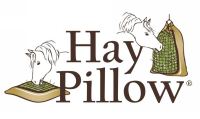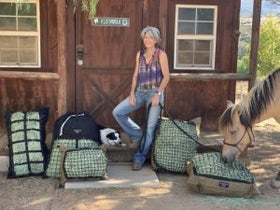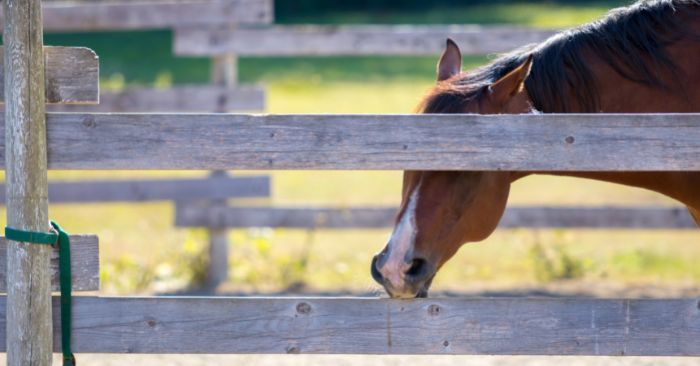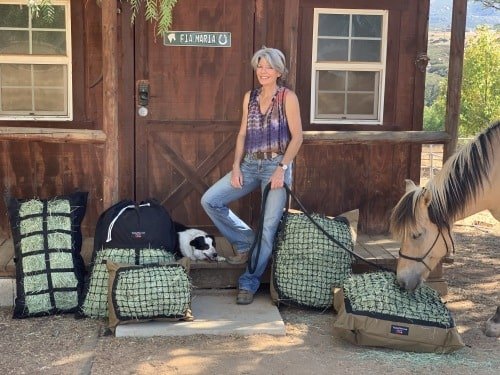Why Do Horses Chew On Things?
Chewing activates saliva production, which buffers gastric acid. The stomach produces acid 24/7 to prepare for constant uptake of food. The stomach begins to empty in 20 minutes to 2 hours or when 2/3's full - depending on the type of feed and rate of consumption. Once feed stuff travels to the small intestine, the stomach continues to produce acid with or without food present. Chewing effectively buffers gastric acid - and can give some relief even without food.

Remember - Horses are innately oral. They are mentally and physically designed to chew 16-20 hours a day. (Learn more about How Forage Buffers Acid and Safer Always Have Hay Sources.)
Young horses may require a firm surface to assist in exfoliation of baby teeth such as a log.
Common Causes of Discomfort, Stress & Vices
Common causes of physical - and/or mental - discomfort, stress, and vices include:
- Lack of forage
- Ulcers
- Weak digestive tract due to parasite load or low gut flora population
- Boredom
- Confinement
- Isolation
- Mineral/Vitamin deficiencies or imbalances
- Pain
Providing free choice forage, a mentally and physically healthy environment, resolving any source of pain and a well-balanced diet should keep your herd entertained and preserve your objects for their intended purpose.
Helpful How-to Resources for Slow Feeding
- Sand Colic - The Surprising (Simple) Cure & Prevention
- Can Horses Eat More Hay Without Weight Gain? The Surprising Factors
- How to Introduce & Incorporate Free-Choice Forage: A Detailed Action Plan
- Slow Feed Solutions for Any Environment
- 6 Great Reasons to Feed Your Horse from Ground Level
- 9 Benefits of Slow Feeding Horses
- 7 Slow Feed Dos and Dont's for Horses
- 7 Easy Ways to Help Prevent Colic
- Never Exercise Horses on an Empty Stomach...Ever
- Why You Shouldn't Transport Horses On An Empty Stomach
- Why Most Horse Prefer to Eat Outside




